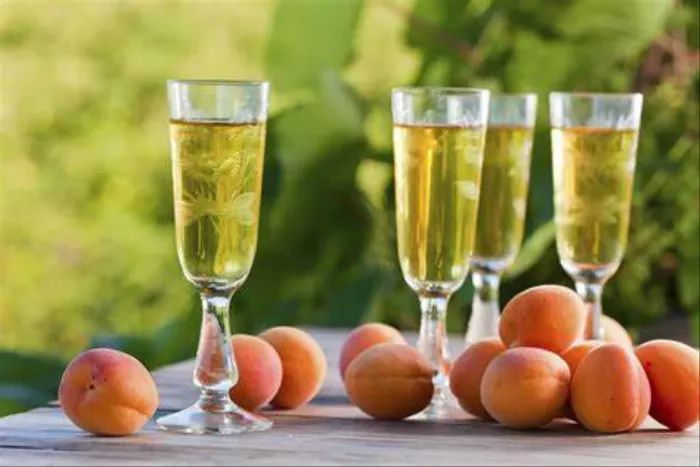The world of mixology has long been associated with a certain sense of elegance, sophistication, and often, femininity. Cocktails, with their colorful presentations and diverse flavors, have frequently been labeled as feminine beverages. But why is this association so prevalent? What historical, social, and cultural factors contribute to the perception of cocktails as feminine drinks?
Historical Origins and Gendered Connotations
To comprehend why cocktails are often deemed feminine, delving into their historical roots is imperative. The history of cocktails traces back to the early 19th century when they emerged as mixed alcoholic drinks, initially simple in composition. However, as cocktail culture evolved, so did its associations. The term “cocktail” itself has origins that point towards a feminine connection. It’s believed that the word ‘cocktail’ was first coined in the early 1800s and could potentially be derived from the practice of horse traders who would “cock their tail” to signify a horse’s quality. The concept of mixing drinks and the name itself possibly carried this connotation of “cock-tailing,” implying a mixing process akin to the mixing of a horse’s tail.
During the late 19th and early 20th centuries, cocktail culture became intertwined with societal changes, particularly in the United States. This era marked a shift in gender roles, with women increasingly participating in public life, including socializing in bars and clubs where cocktails were served. Cocktails became a symbol of rebellion against traditional gender norms, as women embraced these drinks in social settings previously dominated by men. As a result, cocktails acquired an association with femininity, symbolizing freedom and empowerment for women.
Marketing and Perception: Influence on Gender Bias
The marketing strategies employed by the alcohol industry have also played a significant role in cementing the perception of cocktails as feminine drinks. Advertisements often depict cocktails using vibrant colors, elegant glassware, and elaborate garnishes, which align with stereotypical feminine aesthetics. Brands frequently target female consumers by promoting cocktails as chic, fashionable, and sophisticated beverages, further reinforcing the gendered perception.
Furthermore, the nomenclature of cocktails has contributed to their association with femininity. Names like “Cosmopolitan,” “Bellini,” and “Mimosa” evoke images of luxury, refinement, and femininity. These names, combined with the drink’s appearance and marketing, contribute to the perception that cocktails are primarily for women.
Cultural Influences and Societal Expectations
Cultural influences also play a pivotal role in the gendered perception of cocktails. Society often imposes specific expectations regarding beverage choices based on gender. Men are frequently encouraged to opt for ‘manly’ drinks such as whiskey or beer, associated with strength and ruggedness, while cocktails are portrayed as delicate and sophisticated, appealing more to women. This societal conditioning perpetuates the belief that certain drinks are inherently masculine or feminine.
Moreover, the role of bartenders in shaping perceptions cannot be overlooked. Historically, bartending has been a male-dominated profession. As a result, the expertise and craftsmanship involved in creating cocktails have been associated with masculinity. However, the shift towards more female representation in the bartending world challenges these gender stereotypes, redefining the narrative around cocktails and gender.
Evolution of Cocktail Culture: Breaking Gender Norms
Despite the pervasive association between cocktails and femininity, contemporary trends indicate a shift in this perception. The evolving cocktail culture embraces inclusivity, diversity, and breaking away from gender norms. Mixologists and bartenders across genders are challenging traditional stereotypes by creating innovative cocktails and fostering an inclusive environment in bars and social settings.
The rise of gender-neutral and gender-inclusive cocktail menus reflects the changing attitudes towards beverages. Bars and restaurants are reimagining their offerings by steering away from gendered marketing and instead focusing on the craftsmanship, flavors, and experiences associated with cocktails. This shift aims to create a more welcoming environment for all individuals, regardless of gender.
The Psychology Behind Perceived Gender Associations
Psychological studies delve into the reasons behind perceived gender associations with certain drinks. Research suggests that individuals tend to associate specific characteristics with beverages, attributing traits like strength or sweetness to different types of drinks. These associations are often influenced by societal norms and personal experiences, contributing to the perception of cocktails as feminine due to their perceived elegance, sweetness, or colorful presentations.
Furthermore, the phenomenon of social identity theory plays a role in reinforcing gendered perceptions of cocktails. Individuals often seek to conform to societal norms and stereotypes associated with their gender identity. As a result, men and women might gravitate towards certain drinks that align with these stereotypes to conform to societal expectations.
The Role of Education and Awareness
Addressing the gendered perception of cocktails requires education and increased awareness within the industry and among consumers. Initiatives aimed at promoting inclusivity, diversity, and challenging stereotypes are essential. Educational programs, workshops, and discussions focused on dismantling gender biases in mixology can contribute to a more equitable and open-minded cocktail culture.
Moreover, highlighting the historical significance of cocktails and their evolution can offer a more nuanced understanding of their association with femininity. By acknowledging the diverse cultural influences and societal changes that shaped cocktail culture, individuals can appreciate these beverages beyond gendered stereotypes.
Conclusion
The perception of cocktails as feminine drinks is deeply rooted in historical, cultural, and societal influences. However, the evolving cocktail culture is challenging these gender norms, emphasizing inclusivity and diversity. The industry’s shift towards breaking stereotypes and creating a more welcoming environment for all individuals regardless of gender marks a positive step forward. Ultimately, understanding the complexities behind the gendered perception of cocktails enables us to appreciate these beverages for their craftsmanship, flavors, and cultural significance beyond traditional stereotypes.


